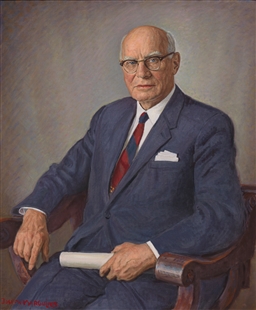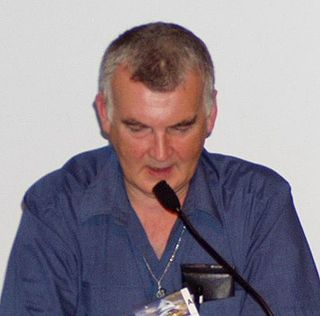A Quote by Steve Martin
My fear represented the failure of the human system. It is a sad truth of our creation: Something is amiss in our design, there are loose ends of our psychology that are simply not wrapped up. My fears were the dirty secrets of evolution. They were not provided for, and I was forced to construct elaborate temples to house them.
Related Quotes
Perhaps that is our doom, our human curse, to never really know one another. We erect edifices in our minds about the flimsy framework of word and deed, mere totems of the true person, who, like the gods to whom the temples were built, remains hidden. We understand our own construct; we know our own theory; we love our own fabrication. Still . . . does the artifice of our affection make our love any less real?
There is no hate without fear. Hate is crystallized fear, fear's dividend, fear objectivized. We hate what we fear and so where hate is, fear is lurking. Thus we hate what threatens our person, our liberty, our privacy, our income, our popularity, our vanity and our dreams and plans for ourselves. If we can isolate this element in what we hate we may be able to cease from hating... Hate is the consequence of fear; we fear something before we hate; a child who fears noises becomes the man who hates them.
Our parents all experimented with raising us in a fairly loose, unorthodox way. A huge emphasis was placed on creativity, and our artistic efforts were never dismissed as childish. There was a sense that we - kids and grown-ups - all had the potential to make something of value. Our drawings were not simply destined for the refrigerator.
Our crisis is a birth. We are one living system and we have come to the limit of one phase of natural growth on a finite planet We must learn ethical evolution quickly As we seek to facilitate a gentle birth, a graceful and nonviolent transition to the next stage of our evolution, we will discover a natural pattern, a design of our birth transition, and develop a plan to cooperate with this design.
The number of human deaths due to hardening of the arteries and other similar diseases suggests that human beings were not meant to eat animals; our bodies are unable to digest the animal fat effectively and it ends up stored in our blood vessels, not to mention our waist lines, buttocks and thighs!
I was taught you don't tell your secrets to strangers - certainly not secrets that expose error, weakness, failure. My generation, like its predecessors, was taught that since our achievements received little notice or credit from white America, we were not to discuss our faults, lapses, or uncertainties in public.
And yet in a funny way our lack of success led to our breakthrough; because, since we could not get a cell line off the shelf doing what we wanted, we were forced to construct it. And the original experiment ... developed into a method for the production of hybridomas ... [which] was of more importance than our original purpose.
Hey, this is Europe. We took it from nobody; we won it from the bare soil that the ice left. The bones of our ancestors, and the stones of their works, are everywhere. Our liberties were won in wars and revolutions so terrible that we do not fear our governors: they fear us. Our children giggle and eat ice-cream in the palaces of past rulers. We snap our fingers at kings. We laugh at popes. When we have built up tyrants, we have brought them down. And we have nuclear ********* weapons.


































